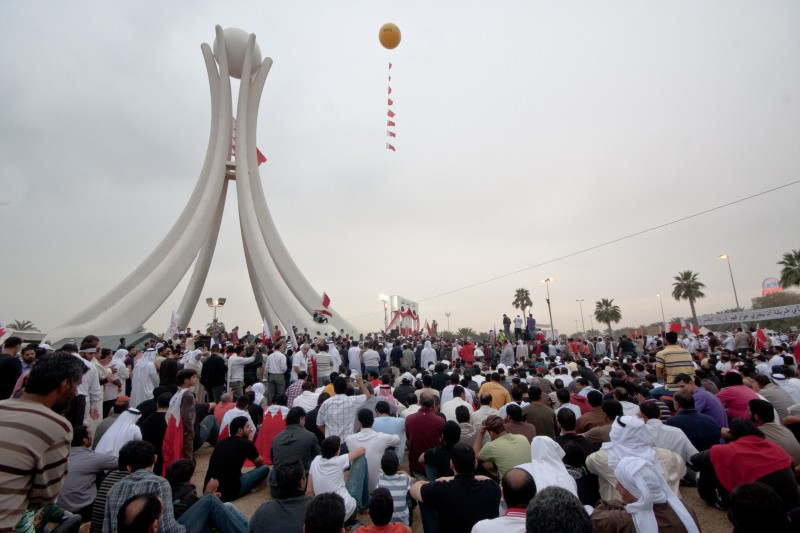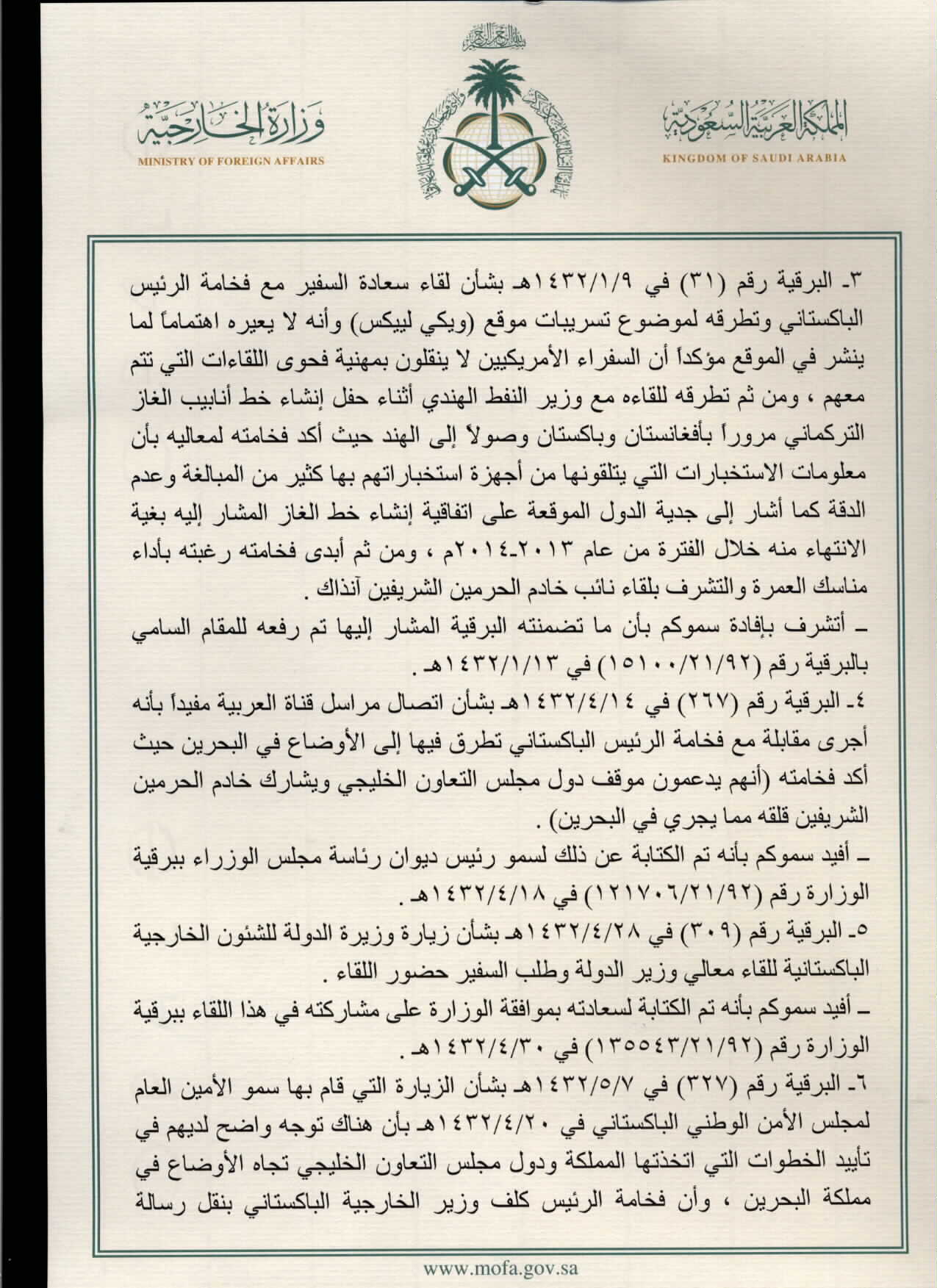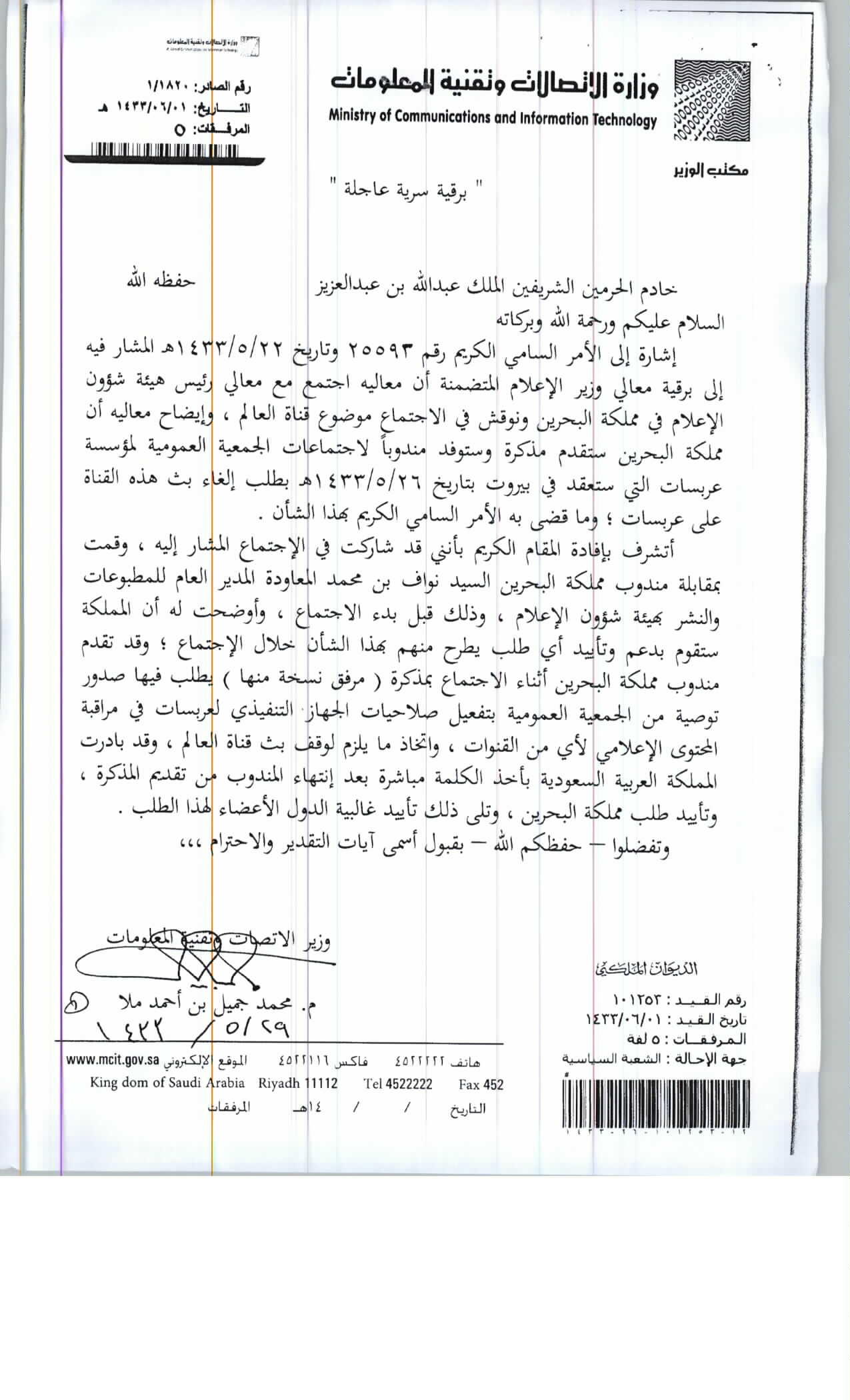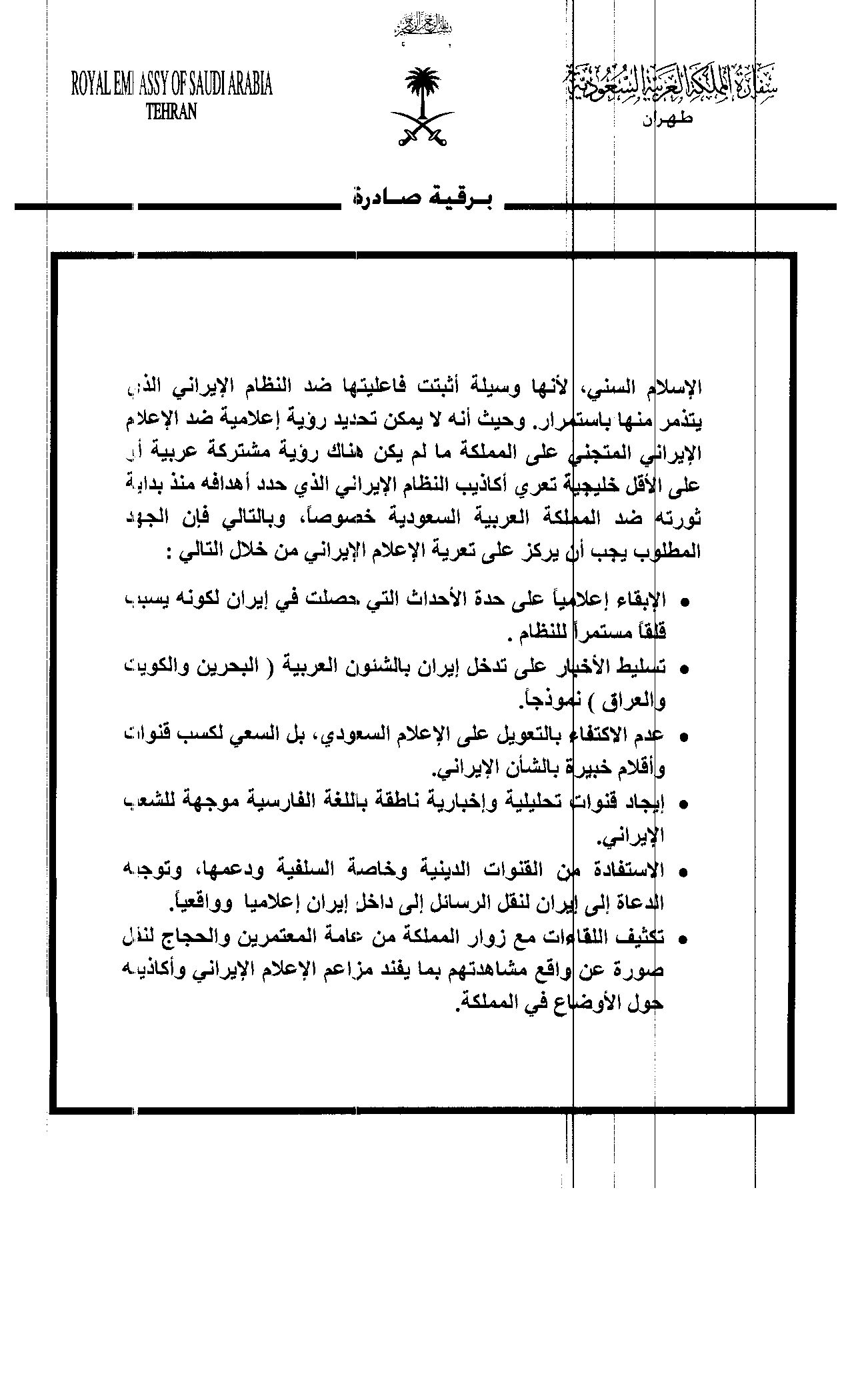
Bahraini anti-government protesters protesting and camping at Lulu (Pearl) Roundabout in the middle of Manama, the country's capital, calling for political reform. Manama, Bahrain. 25/02/2011. Photo by HI D. Copyright Demotix
The half a million leaked documents dubbed the Saudi Cables offer a peek into Saudi Arabia's obsession with media coverage of the 2011 Bahraini uprising and the role it played in shaping propaganda.
It's no state secret that the neighboring kingdoms have a close relationship. The Saudi government sent the Peninsula Shield forces to crush the anti-government movement that swept through Bahrain, with protesters calling for democratic reforms and more freedoms.
When entering the word “Bahrain” into the search tab of whistleblowing site WikiLeaks, 145 English and 790 Arabic documents appear as of now.

Saudi Foreign Ministry telegram showing Al Arabiya channel's correspondent in Bahrain kept officials up to date on interviews he conducted with government officials about the situation in Bahrain.
A telegram issued by the Saudi Foreign Ministry showed Al Arabiya channel's correspondent in Bahrain Mohammed Al-Arab was in contact with the ministry to keep them informed of the interviews he conducted with government officials about the situation in Bahrain.
He conducted an interview with the Pakistani president in which he discussed the situation in Bahrain and stressed his country's support of the Gulf Cooperation Council‘s (GCC) position on Bahrain's uprising, and that he shares the Saudi king's concern regarding that matter. It is not clear in the document what position the Pakistani president is referring to.
In another cable, the Saudi ambassador in London reported to the Saudi government that Bahraini opposition channel Lualua TV is funded by the US and the UK governments, after having suffered from financial problems.
Um Ahmed tweeted a picture of it:
قناة اللؤلؤة ممولة بشروط عدم التعرض لملك البحرين #ويكليكس_السعودية #ويكيليكس #wikileaks pic.twitter.com/hZSzpF9WPP
— أم أحمد (@bahrainmomo) June 22, 2015
Lualua TV is funded on the condition of avoiding criticism of Bahrain's king
The cable also states the funding condition was to shift the pressure on King Hamad to criticism of the Prime Minister Khalifa bin Salman Al Khalifa, the king's uncle. The US and the UK are primary allies to the regime in Bahrain, and played a double standard role with the opposition there. Bahrain, being home to the American naval base and the future home of a British one, it is not in the two countries’ benefit to lay off the king. However, not to tarnish their democratic image in the international community, shifting criticism to the prime minister at least reflects the West's belief in true democracy and freedoms.
Another report, labeled “Secret and Urgent” signed by the former Saudi minister of communications and information technology Mohamed Jameel Mulla on June 1, 2012, states that the Saudi minister of information had a meeting with Bahrain's director of information affairs to discuss the Iranian state-owned TV channel Al-Alam. Bahrain's representative had mentioned in the meeting he will present a memo at the Arab Satellite Communications Organization's (Arabsat) general assembly requesting they stop the broadcast of the Iran-based channel.

A report labeled “Secret and Urgent” states that the Saudi minister of information had a meeting with Bahrain's director of information affairs to discuss the Iranian state-owned TV channel Al-Alam.
The Saudi minister wrote he attended the meeting, held in Beirut on May 26, 2012, and reported that Saudi Arabia, as well as other member states, supported Bahrain's request. Arabsat, whose headquarters is in the Saudi capital Riyadh, is the leading communications satellite operator in the Arab world. Al-Alam, on the other hand, dedicated its coverage to supporting the opposition in Bahrain against the government, which the regime claimed fueled the unrest and played a role in the sectarian divide.
The document also states that Bahrain had also requested for Arabsat's executive body to be more active in monitoring all channels and their content.
But in the end, Bahrain's request was met with no response. An article on Middle East Online published on the day that the general assembly was held said Bahrain will stop broadcasting its channels on Arabsat starting June 1 in a move to boycott its inaction over Iran's “hostile” media campaign against the regime.
Zain Benjamin, a journalist for Radio Sawa based in Washington DC, tweeted a two-page letter written and signed by the Saudi minister of culture and information in which he says that Bahrain had become the hub for media criticism of both the Bahraini and Saudi government.
#السعودية | ويكليكس: #البحرين اصبحت منطلقاً للاساءة الاعلامية للرياض – مكتب وزير الاعلام pic.twitter.com/PJ8RkhA8mG
— Zaid Benjamin (@zaidbenjamin) June 19, 2015
Saudi Arabia WikiLeaks: Bahrain became the springboard for media abuse of Riyadh: Ministry of Information Office
There was a specific mention of Reuters correspondent in Bahrain, Andrew Hammond, who the Saudi government claims to have kicked out of the country previously when he was based in Riyadh for allegedly writing biased articles. The minister continues to say Hammond had now moved to Bahrain to continue his attack against both governments, to the point that it went beyond only reporting but also using his personal Twitter account to publish “insulting phrases.”
In the letter addressed to the Saudi king, the minister had asked to be allowed to meet the Bahraini Director of Information Affairs Fawaz Al-Khalifa to discuss collective media policies and strategies in order to counter campaigns of foreign media coverage on the uprising.
Saudi Arabia did not stop there, but also adopted a strategy to push news that emphasizes regional rival Iran's interference in Gulf states, especially Bahrain and Kuwait, as well as in Iraq. This appeared in another document, which states that there needs to be a focus on countering Iranian media by taking advantage of and supporting religious channels, particularly ones that prescribe to the Salafist Islamic movement. It also promoted guiding preachers to Iran so that they could deliver the message inside that country.

A leaked document that shows Saudi Arabia's desire to combat Iranian media by taking advantage of and supporting religious channels.
Stay tuned as Global Voices digs up more documents from the leaked cache. For Bahrain specific updates and news from Saudi Cables, follow our Checkdesk story “#SaudiCables: Wikileaks Publishes Secret Documents on Bahraini Matters.” Also check out our coverage on Checkdesk Global Voices, where we are tracking citizen media reactions to the Saudi Cables.






